UK confronts colonial past with statue protests
Protesters sat with raised fists for nearly nine minutes in tribute to George Floyd, who died in police custody in Minnesota on May 25.
Thousands of people called on Tuesday for a statue of 19th century British imperialist Cecil Rhodes to be removed from an Oxford University college, as debate raged over the removal of other monuments to the nation's colonial past.
Protesters chanted "Take it down" and "Decolonise", and held placards urging "Rhodes Must Fall" and "Black Lives Matter" beneath the statue at Oriel College.
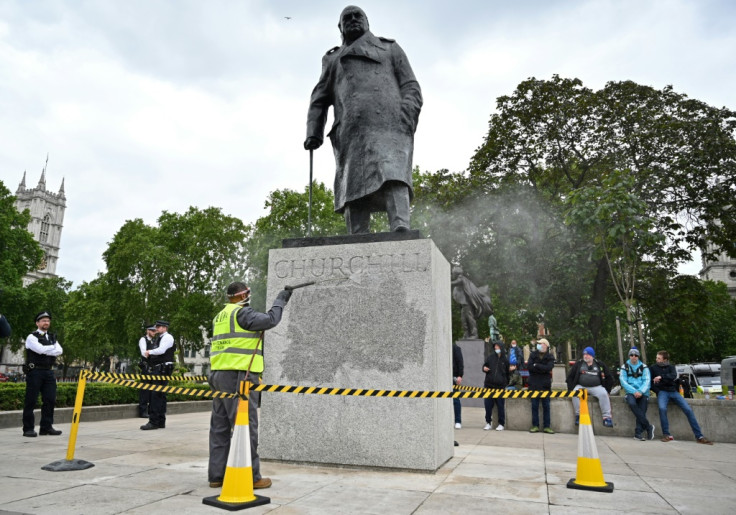
The "Rhodes Must Fall" movement, which began in South Africa, failed in a previous attempt to have the statue removed but has been revived by a wave of anti-racism protests.
Protesters sat with raised fists for nearly nine minutes in tribute to unarmed black man George Floyd, whose death in US police custody triggered outrage and condemnation worldwide.
Sylvanus Leigh, 44, said the limestone statue of the Victorian-era tycoon, who founded the De Beers diamond company in what is now Zimbabwe, represented "a colonial mindset".
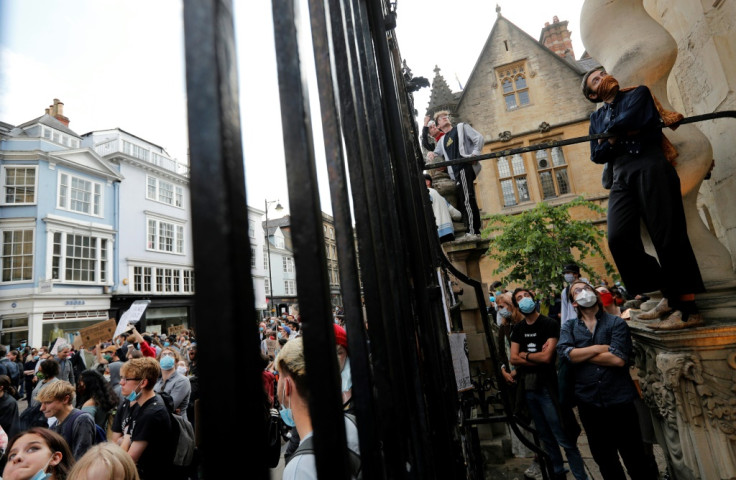
The care worker told AFP he could think of more deserving candidates for a statue. "Better to have Mother Teresa or Desmond Tutu," he said.
The leader of Oxford City Council, Susan Brown, said it would be a "good thing" if Oriel, which was founded in 1326, applied for permission to remove the statue.
The college had to "find the right balance between the laws that protect our historic buildings and the moral obligation to reflect on the malign symbolism of this statue", she added.
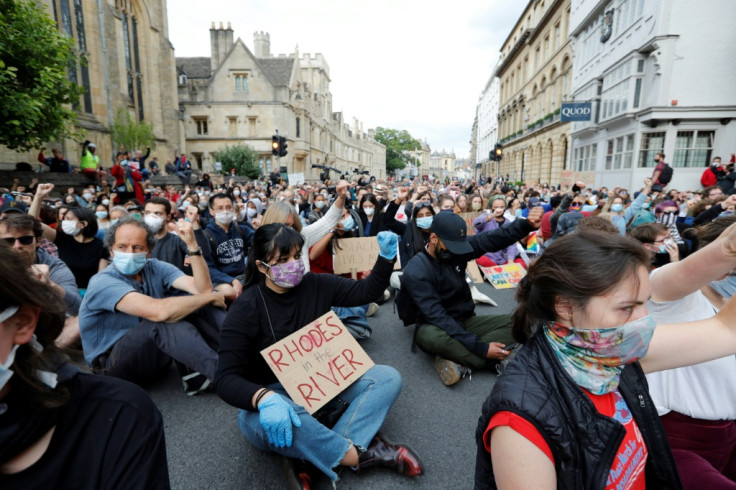
Local MP Layla Moran called Rhodes a "white supremacist who does not represent the values of Oxford in 2020".
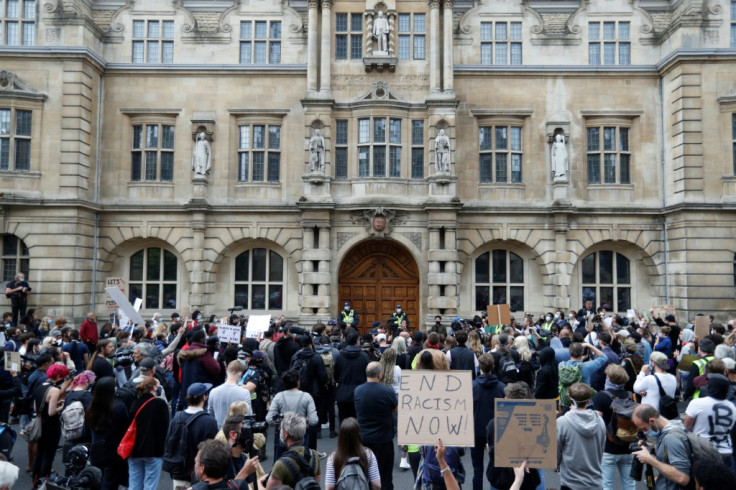
The protest comes after activists toppled a statue to Edward Colton, a 17th century merchant who helped build the city of Bristol and played a leading role in slavery.
Years of local debate over what to do with the statue came to an end on Sunday when it was thrown in the harbour.
Campaigners in Wales are now demanding the removal of memorials to Napoleonic war hero Thomas Picton, who was accused of cruelty while serving as a governor in Trinidad.
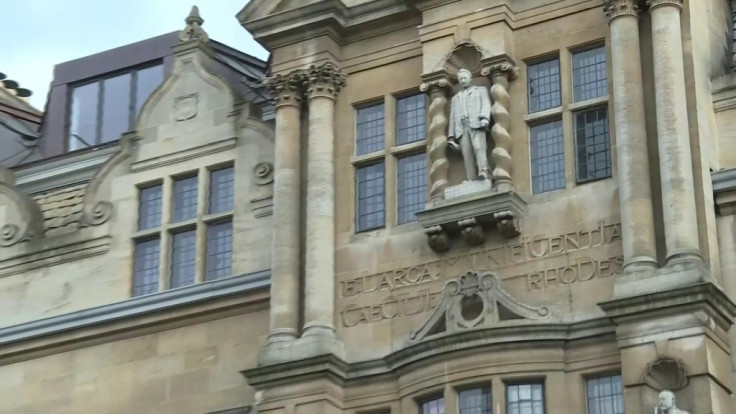
In Scotland, activists have called for changes to the streets named after the 18th and 19th century tobacco and sugar traders who made their fortunes through slavery.
A central London statue of Winston Churchill was defaced, with protesters blaming his policies for the death of millions during famine in the Indian state of Bengal in 1943.
Mayor Sadiq Khan launched a review of city landmarks and street names, saying many reflected "a bygone era", and could better reflect the capital's diversity.
"It is an uncomfortable truth that our nation and city owes a large part of its wealth to its role in the slave trade," he said.
The Canal and River Trust announced it would "remove as soon as possible" a statue of Robert Milligan, whose family owned sugar plantations in Jamaica, from London's Docklands.
Despite widespread support, some warned of an attempt to erase the past.
"If you change the street names it's easier to forget but it's better to have signs underneath to talk about what these men did," said student Kieran Weatherill, 24, in Glasgow.
Prime Minister Boris Johnson said he understood the "depth of emotion" triggered by Floyd's death and the anger from black and ethnic minority groups about discrimination.
"We who lead and who govern simply can't ignore those feelings because in too many cases, I am afraid, they will be founded on a cold reality," he said in a video message Monday.
But he warned he would not tolerate vandalism or violence, after clashes near his Downing Street office left 35 police officers injured.
However, he expressed pride in having what he claimed was the most diverse cabinet in British history, including interior minister Priti Patel, who on Monday told MPs how she had faced racial abuse as a child.
Copyright AFP. All rights reserved.
This article is copyrighted by International Business Times, the business news leader





















